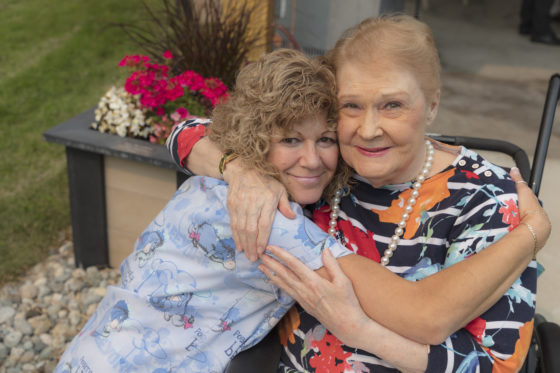B.C. health care assistants were recently honoured and celebrated at conferences focused on promoting workplace safety and the care aides’ well-being.

Photo credit: © WorkSafeBC (Workers’ Compensation
Board of B.C.), used with permission
Health care assistants make a huge difference to people’s quality of life.
In honour of these workers — also known as resident care assistants, community health workers, and home care workers — WorkSafeBC and its partners once again hosted the annual Hearts & Hands Conferences in October. These conferences are aimed specifically at recognizing and supporting the work these workers do.
A special feature of this year’s conferences, which were held in Victoria and Penticton, was a video showing care home residents describing the support they get from their caregivers.
“The idea was to show the video to people in the community so they know what’s happening in their neighbourhoods. We want this group to feel even more proud of their choice to be a care aide,” says WorkSafeBC industry specialist John Lam. “Care aides need to be recognized publicly and the conference was an excellent venue to provide this recognition.”
Better tech and processes mean fewer manual lifting injuries
A major part of the conferences is providing participants with tools to support their health and safety at work. This is especially important for this group because they are injured more often than workers in any other occupation in B.C.
The most common injury among workers in this group is overexertion from lifting. But John says he’s seen a decline in the number of overexertion injuries from directly lifting residents in recent years. He says: “There’s better technology, more processes in place, and people don’t manually lift as much anymore.”
But what he has noticed from the statistics is an increase in overexertion injuries from what he calls “Good Samaritan acts.” For example, this can happen when care aides see residents about to fall.
“They rush to the resident to try and help, just as anyone else would. But trying to catch the weight of a falling person can be difficult, especially when you’re just rushing there without a plan in mind.”
Addressing emotional distress before it leads to violence
Sadly, the second-most-common cause of injuries for these support workers is violence from the people they care for. It can happen when patients are feeling emotional distress, experiencing illnesses such as dementia, reacting to medications, struggling to communicate their needs, or for many other reasons. See my post Point-of-care risk assessment helps health care assistants work safer for compassionate solutions.
For more on the conference, see this Castanet news story from Penticton: Celebrating health workers. Thanks to all care aides for the good you do!


